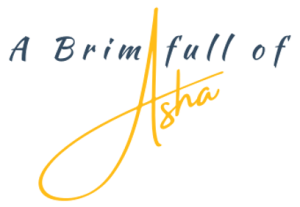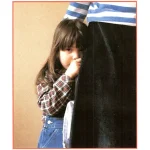by Kusum Saxena
Wellness Counsellor based in California

Kusum believes that an individual’s emotional landscape is an important area to address for their wellness practice to be sustainable. She often found that her students, who ostensibly came for a specific physical course of treatment or diet, would get into their current circumstances and their reaction to those events. She quickly realised that being able to gently guide, with humour whenever possible, or suggest practical solutions to some of those challenges, would enable that person to maintain their wellness practice. As the counselling component developed, a few students started recording what they affectionately called ‘Kusumology’.
Friendships, like any other close relationship, are a state of enduring affection, care, adjustment, consideration, respect and trust crafted between individuals. In a recent conversation, an observation came up that long standing friends, people whose moral support, affection and acceptance we depend on, can sometimes seem akin to strangers. That experience can indeed be emotionally distressing. It led me to think of how friendships, or relationships in general, can change over time in ways that makes them unrecognizable.
Haven’t we all heard and said at some point in our life that we have grown apart, in reference to certain relationships in our life? Could this growing apart lie at the heart of why long held friendships or associations can, at times, become strained and akin to an interaction between strangers?
As a wellness counselor, I have come across several instances where childhood or long-term friendships formed in young adulthood have disintegrated. The reasons for the dissolution abound. Perhaps where a friend sought solace, they were met with a hurried response from the other, or where they sought to give advice, it might have been ignored. Where one friend needed understanding there was instead a rush to judgement or just an emotional remoteness by the other, or perhaps one friend’s changed circumstances and priorities in life no longer allowed the same dynamic that had previously existed.
Rishab, for example, came to me with a deep disillusionment with a childhood friendship. He said he was more affected by the changed nature of his friendship than he had been when he got divorced from his wife. The friendship had begun when both boys were in grade school, and had continued through the trials and tribulations of their adult life, often remotely as one of them had moved to another country. Nevertheless, for several years they stayed connected, enjoying the warmth and trust of their friendship.
However, when certain critical life events took place Rishabh realized that the interaction with his friend had subtly changed. Their conversations seemed one-sided, and he sensed a disconnect on his friend’s side. During our sessions, he expressed his angst due to his friend’s indifferent attitude, and the desire that he did want to revive the friendship as it meant a lot to him.
Through our sessions, I noticed that he was getting caught in a whirlpool of self-created anticipation and expectations from his friend that were harming his peace of mind. To ease this, I suggested he try to deal with the equation he now had with his friend differently than he had in the past. Perhaps start with honest introspection, to understand his reality and his expectations from his friend? There could be many reasons for his friend’s apathetic attitude towards him or his suggestions. Could Rishab have said something that might have offended his friend’s ego? Was he over-demanding, or too emotionally dependent, on his friend? Had he displayed any jealousy for his friend’s happiness and success over the years, or noticed any on the part of his friend? Could his friend’s attitude just be a passing phase, caused perhaps by his going through a complicated emotional phase, and stressful circumstances? After all, people do take a break even from good friends when they are under heavy pressure of time, unsolved problems, or even self-pity.
After sorting out his own thoughts with honesty, Rishab made an effort to have amiable conversations with his friend, where he consciously avoided any confrontation on sensitive issues. He made an effort to give his friend space to interact with him the way he felt comfortable, rather than expressing his disappointment at the interaction, or even trying to dwell on how that interaction may not have matched his expectations.
After some time, he gently expressed a bit of his disappointment to his friend, but also that he did not expect his friend to change the course of their interaction. To some extent, this conscious tweaking worked in their favour. At the very least, my client was able to avoid feeling let-down post their interaction, and at best they were able to share a laugh over mundane issues.
Every relationship gives one a chance to grow. But growing together can only happen when both people in any relationship are committed to resolving the emotional problems or conflict that arises with willingness and maturity. Adjustment (of one’s expectations) with understanding is a way to sustain and maintain a good relationship. Such efforts can keep the bonds of friendship strong if the relationship is rooted in mutual trust, deep affection, concern and esteem. As long as the loving relationship lives in the heart, true friends will never part!
There are times, however, when such efforts may not revive past dynamics. Is it worth it then to keep attempting to hold on to a friendship, or any relationship for that matter, if there’s so much tension involved in keeping it? In such a case, perhaps it may be better to make a wise and balanced call to remain in touch, but not attached. Try to just cherish the fond and happy memories, and move on with good will for your friends for having given you smiles and laughter!
Good friendships play a significant part in improving emotional wellness. Friendships and relationships have a greater chance to flourish with joy if there is minimal expectation of quid pro quo. One friend could be a good listener, and the other someone who is better able to act practically in the interest of their friends. That this dynamic could change over time is in-built in the nature of relationships. Wise is the person who understands that and takes that in their stride. Wise too the person who realizes that ‘rare as is true love, true friendship is rare’ (Jean de la Fontaine).





Agree. True friendships are hard to find and can sometimes be difficult to maintain.
Comment from Mrs Indra Bhatia:
Very interesting two blogs – scope for a lot of introspection & so pertinent to today’s environment. Will mull over them while looking at the mountains🙏🏽🤗